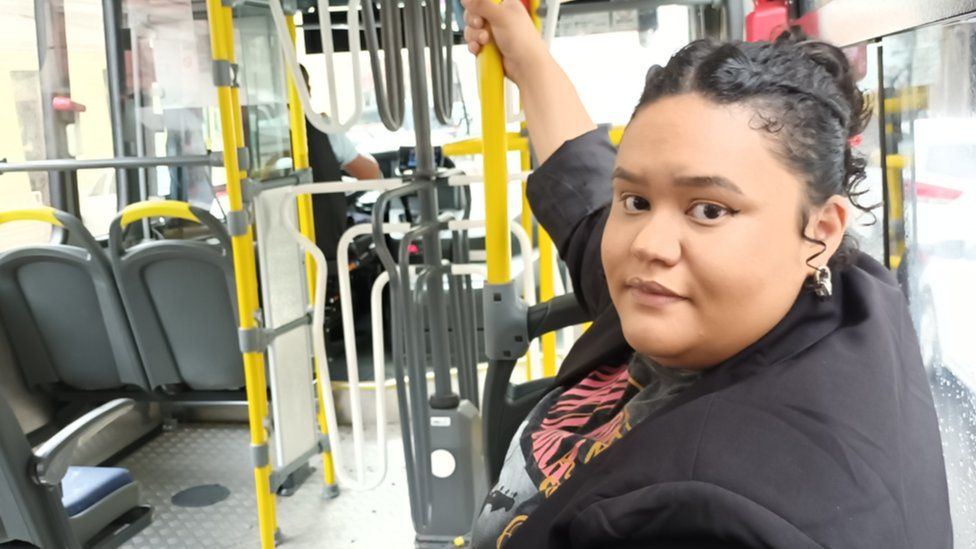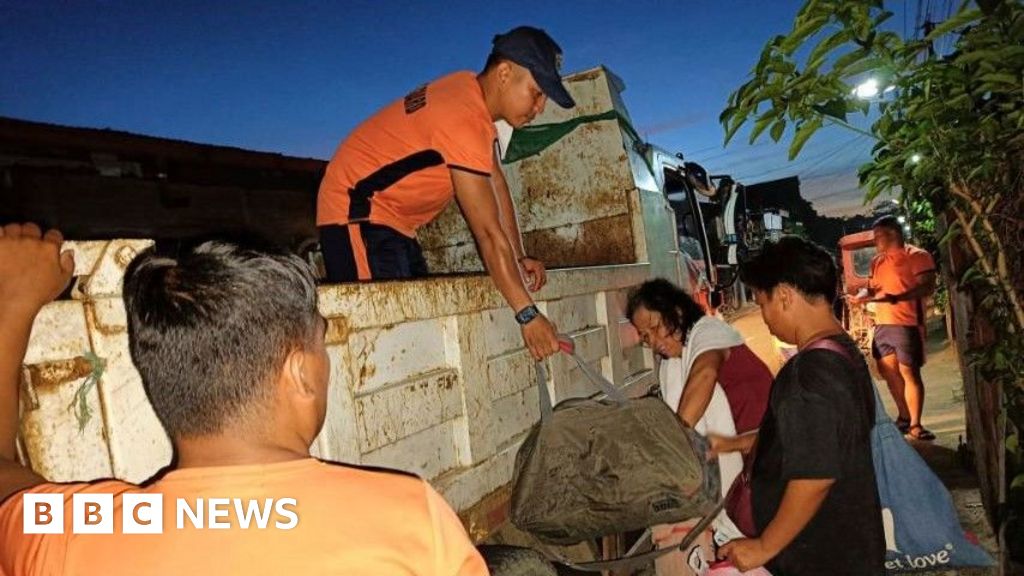ARTICLE AD BOX

Rayane Souza avoided taking city buses after years of struggling to get on board
Rayane Souza used to struggle taking the local bus in Vitória, the capital of the Brazilian state of Espírito Santo, 480km (300 miles) north of Rio de Janeiro.
Aged 14, having got stuck in the bus turnstile yet again, and feeling the eyes of the rest of the passengers on her, she vowed never to take this form of public transport again.
"I've been fat my whole life. I became used to hearing rude comments about my weight," she said.
Ms Souza's experience is not unique. Another Brazilian woman recently got stuck in a turnstile on a bus for more than four hours.
In the end, firefighters had to be called to free her. A few passengers tried to help her, but she said others posted embarrassing pictures of her on social media.
While studying at university, Ms Souza suffered similar humiliation on social media after already having been teased and bullied at school about her weight.
"I was the victim of bullying, of fatphobia. All the students made a WhatsApp group and they took my photos that I published on my social networks in that group and started to make fun of me."
That was a watershed moment for Ms Souza. Rather than retreating into her shell, she decided she was not going to be intimidated.
She decided to set up a campaigning group with fellow law graduate Mariana Oliveira. They called it Gorda na lei, the Portuguese for "Fat in the law".
It aims to advise people of their legal rights if they are discriminated against because of their weight.
They receive around 70 messages per month from people who want compensation or simply to share their story.
Accepting different body shapes
Brazil might be known for the stereotype of the tanned beach-ready body, but the reality is, that like in much of the developed world, more than half of the population is overweight, with a quarter medically obese.
Campaigners argue society should accept this. They say Brazil is amongst the countries leading the world in successfully forcing through policy changes to accommodate different body shapes.
According to official statistics, there are more than 1,400 open cases mentioning fatphobia just in Brazilian employment tribunals.
Even though fatphobia is not a specific crime, it can be pursued under existing legal categories such as libel, slander and moral harassment, explains Ms Oliveira, who is now a human rights lawyer.
She mentions one particular case in which a business owner made it a condition of paying a bonus to one of his employees that she lost weight. "He even made her hop on a scale," Ms Oliveira says.
Human rights lawyer Mariana Oliveira has heard about many cases of discrimination
The judge ruled in the employee's favour and set reparations at R$10,000 ($1,900; £1585) - one of the highest amounts registered in Brazil involving a fatphobia case, but still a small sum compared to other decisions in the Brazilian judicial system.
One of the places in Brazil where policy change has been made is in the city of Recife.
A bill passed by its council last year obliges schools to have bigger desks.
Recife's councilwoman Cida Pedrosa was the key mover in introducing the new legislation: "A lot of the stories that I'd heard were of people who were humiliated because they couldn't fit behind a school desk."
The new law passed by Ms Pedrosa means every school in Recife has a bigger desk in each of the rooms.
Image source, Cida Pedrosa
Image caption,City councilor Cida Pedrosa helped pass a new law to provide bigger chairs and desks for people who are overweight
Ms Pedrosa rejects the suggestion that making these changes means abandoning efforts to make obese and overweight Brazilians lose weight.
"We're not denying that in some cases, being obese can bring health problems. But we also have to stop pathologizing fat bodies and thinking that fat bodies are sick."
There is no national campaign in Brazil to encourage people to lose weight, in part because health professionals cannot agree on how to get the message across without stigmatizing people who are overweight.
Many Brazilian doctors believe patients who are overweight should be told straight that they need to lose weight.
Lucia Cordero, a specialist who treats many obese patients at her clinic in Recife, agrees that this condition can lead to a catalogue of health conditions.
"We know that a higher BMI leads to more mortality, heart attacks, strokes," she says.
According to Ms Cordero, sleep apnoea - where a patient's breathing stops and starts during sleep - is also a "huge problem", as are diabetes and cancer.
But Ms Cordero insists that a more sensitive approach is needed.
"Obesity is a disease. We have to tell society to try to live a healthy life, but we need to be careful with how we send the message, so it doesn't transform into prejudice, into fatphobia."
Listen to Assignment on BBC Sounds

 1 year ago
73
1 year ago
73








 English (US)
English (US)